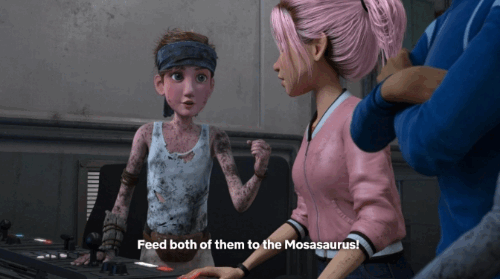#computational modelling
Explore tagged Tumblr posts
Text
Computational modeling has become an invaluable tool in modern science, offering the ability to simulate complex systems and predict outcomes with remarkable precision. One of its most significant advantages lies in its ability to analyze data before committing to real-world experiments, saving valuable time, money, and resources. By utilizing computational models, researchers can gain critical insights into the behavior of a system, identify potential problems, and design more effective experiments—all before setting foot in a lab. It's like testing your outfit in front of the mirror before heading out—minus the judgmental stares.
0 notes
Text


"Now, the vow will be honoured, and my Lord brother's soul will return."
Radahn stans keep winning, but I personally am in Miyazaki's walls rn
#my art#shadow of the erdtree spoilers#sote spoilers#shadow of the erdtree#elden ring#godwyn prince of death#godwyn the golden#miquella the kind#miquella the unalloyed#promised consort radahn#fromsoft#i do not think critiques of radahn are as shallow as “pay $40 to fight a boss we already fought”#the dlc is good right up until the final boss#most of the new bosses are good#i loved midra and metyr and messmer and the dancing lion#radahn as consort just comes completely out of left field and just seems like a huge disconnect between the dlc and base game#radahn's story was done with the festival#and it's a good end! i like the festival and the base game radhan fight#but here he shows up again out of nowhere when godwyn is the obvious choice and a godwyn boss fight would be new and interesting#you can even still have your villain miquella story#puppeting his brother's living-but-soulless corpse unable to accept#that just because godwyn is breathing and follows his command like a deprecated computer program#even godhood can't bring his brother's soul back#his body must be slain and he must die a true death#we could have at least gotten a line of dialogue from radahn but nope#ok rant over#this pic is sloppy but idc#no cleanup we die like men#yes i know miquella's model technically has only three arms but i gave him four bc three looks silly
2K notes
·
View notes
Text



A bunch of modelling stuff I made for my partner @kittehburger 's oc Widget!! Isn't he goregous
#objectum#computer#technology#tech#techum#objectophilia#mechaphilia#computer oc#my art#3d model#doyoulikemyturnip#blender3d
3K notes
·
View notes
Text


narcellie
#aesthetic#grunge#crystal castles#fashion#gothic#fashion model#model inspo#style#y2k aesthetic#y2k#y2kcore#y2k nostalgia#2000s aesthetic#cyber core#model icons#cybercore#futuristic#computer#techcore#web
425 notes
·
View notes
Text
A profoundly stupid case about video game cheating could transform adblocking into a copyright infringement

I'm coming to DEFCON! On Aug 9, I'm emceeing the EFF POKER TOURNAMENT (noon at the Horseshoe Poker Room), and appearing on the BRICKED AND ABANDONED panel (5PM, LVCC - L1 - HW1–11–01). On Aug 10, I'm giving a keynote called "DISENSHITTIFY OR DIE! How hackers can seize the means of computation and build a new, good internet that is hardened against our asshole bosses' insatiable horniness for enshittification" (noon, LVCC - L1 - HW1–11–01).

Here's a weird consequence of our societal shift from capitalism (where riches come from profits) to feudalism (where riches come from rents): increasingly, your rights to your actual property (the physical stuff you own) are trumped by corporations' metaphorical "intellectual property" claims.
That's a lot to unpack! Let's start with a quick primer on profits and rents. Capitalists invest money in buying equipment, then they pay workers wages to use that equipment to produce goods and services. Profit is the sum a capitalist takes home from this arrangement: money made from paying workers to do productive things.
Now, rents: "rent" is the money a rentier makes by owning a "factor of production": something the capitalist needs in order to make profits. Capitalists risk their capital to get profits, but rents are heavily insulated from risk.
For example: a coffee shop owner buys espresso machines, hires baristas, and rents a storefront. If they do well, the landlord can raise their rent, denying them profits and increasing rents. But! If a great new cafe opens across the street and the coffee shop owner goes broke, the landlord is in great shape, because they now have a vacant storefront they can rent, and they can charge extra for a prime location across the street from the hottest new coffee shop in town.
The "moral philosophers" that today's self-described capitalists claim to worship – Adam Smith, David Ricardo – hated rents. For them, profits were the moral way to get rich, because when capitalists chase profits, they necessarily chase the production of things that people want.
When rentiers chase rents, they do so at the expense of profits. Every dollar a capitalist pays in rent – licenses for IP, rent for a building, etc – is a dollar that can't be extracted in profit, and then reinvested in the production of more goods and services that society desires.
The "free markets" of Adam Smith weren't free from regulation, they were free from rents.
The moral philosophers' hatred of rents was really a hatred of feudalism. The industrial revolution wasn't merely (or even primarily) the triumph of new machines: rather, it was the triumph of profits over rent. For the industrial revolution to succeed, the feudal arrangement had to end. Capitalism is incompatible with hereditary lords receiving guaranteed rents from hereditary serfs who are legally obliged to work for them. Capitalism triumphed over feudalism when the serfs were turned off of the land (becoming the "free labor" who went to work in the textile mills) and the land itself was given over to sheep grazing (providing the wool for those same mills).
But that doesn't mean that the industrial revolution invented profits. Profits were to be found in feudal societies, wherever a wealthy person increased their wealth by investing in machines and hiring workers to use them. The thing that made feudalism feudal was how conflicts between rents and profits cashed out. For so long as the legal system elevated the claims of rentiers over the claims of capitalists, the society was feudal. Once the legal system gave priority to profit over rent, it became capitalist.
Capitalists hate capitalism. The engine of capitalism is insecurity. The successful capitalist is like the fastest gun in the old west: there's always a young gun out there looking to "disrupt" their fortune with a new invention, product, or organizational strategy that "creatively destroys" the successful businesses of the day and replaces them with new ones:
https://locusmag.com/2024/03/cory-doctorow-capitalists-hate-capitalism/
That's a hard way to live, with your every success serving as a blinking KICK ME sign visible to every ambitious person in the world. Precarity makes people miserable and nuts:
https://pluralistic.net/2024/04/19/make-them-afraid/#fear-is-their-mind-killer
So capitalists universally aspire to become rentiers and investors seek out companies that have a plan to extract rent. This is why Warren Buffett is so priapatic for companies with "moats and walls" – legal privileges and market structures that protect the business from competition and disruption:
https://finance.yahoo.com/news/warren-buffett-explains-moat-principle-164442359.html
Feudal rents were mostly derived from land, but even in the feudal era, the king was known to reward loyal lickspittles with rents over ideas. The "patents royal" were the legally protected right to decide who could make or do certain things: for example, you might have a patent royal over the production of silver ribbon, and anyone who wanted to make a silver ribbon would have to pay for your permission. If you chose to grant that permission exclusively to one manufacturer, then no one else could make it, and you could charge a license fee to the manufacturer that accounted for nearly all their profit.
Today, rentiers are also interested in land. Bill Gates is the country's number one landowner, and in many towns, private equity landlords are snappinig up every single family home that hits the market and converting it to a badly maintained slum:
https://pluralistic.net/2024/05/22/koteswar-jay-gajavelli/#if-you-ever-go-to-houston
But the 21st Century's defining source of rent is "IP" – a controversial term that I use here to mean, "Any law or policy that allows a company to exert legal control over its competitors, critics and customers":
https://locusmag.com/2020/09/cory-doctorow-ip/
IP is in irreconcilable conflict with real property rights. Think of HP selling you a printer and wanting to decide which ink you use, or John Deere selling you a tractor and wanting to tell you who can fix it. Or, for that matter, Apple selling you a phone and dictating which software you are allowed to install on it.
Think of Unity, a company that makes tools for video-game makers, demanding a royalty from every game that is eventually sold, calling this "shared success":
https://pluralistic.net/2023/10/03/not-feeling-lucky/#fundamental-laws-of-economics
Every time one of these conflicts ends with IP's triumph over real property rights, that is a notch in favor of calling the world we live in now "technofeudalist" rather than "technocapitalist":
https://pluralistic.net/2023/09/28/cloudalists/#cloud-capital
Once you start to think of "IP" as "laws that let me control how other people use their real property," a lot of the seemingly incoherent fights over IP snap into place. This also goes a long way to explaining how otherwise sensible people can agree on expansions of IP to achieve some short-term goal, irrespective of the spillover harms from such a move. Hard cases make bad law, and hard IP cases make terrible law.
Five years ago, some anti-fascist counterdemonstrators hit on the clever idea of blaring top 40 music during neo-Nazi marches, on the theory that this would prevent Nazis from uploading videos of their marches to Youtube and other platforms, whose filters would block any footage that included copyrighted music:
https://memex.craphound.com/2019/07/23/clever-hack-that-will-end-badly-playing-copyrighted-music-during-nazis-rallies-so-they-cant-be-posted-to-youtube/
Thankfully, this didn't work, but not for lack of trying. And it might still work, if calls for beefing up video copyright filters are heeded. Cops all over the place are already blaring Taylor Swift songs and Disney tunes to prevent their interactions with the public from being uploaded:
https://pluralistic.net/2022/04/07/moral-hazard-of-filternets/#dmas
The same thinking that causes progressives to recklessly argue in favor of upload filters also causes them to demand that web scraping be treated as a copyright crime. They think they're creating a world where AI companies can't rip off their creation to train a model; they're actually creating a world where the Internet Archive can't capture JD Vance's embarrassing old podcast appearances or newspaper editorial boards' advocacy for positions they now recant:
https://pluralistic.net/2023/09/17/how-to-think-about-scraping/
It's not that Nazi marches are good, or that scraping can't be bad – it's just that advocating for the use of IP to address either is a cure that's not just worse than the disease – it's also not a cure.
A problem can be real, and still not be solvable with IP. I have enormous sympathy for gamers who rail against cheaters who use aftermarket hacks to improve their aim, see through buildings, or command other unfair advantages.
If you want to tell a stranger how they must configure their PC or console, IP ("any law that lets you control your competitors, critics or customers") is an obvious answer. But – as with other attempts to solve real problems with IP – this is a cure that is both worse than the disease, and also not a cure after all.
Back in 2002, Blizzard sued some hobbyists over a program called "bnetd." Bnetd was a program that provided a game-server you could connect to with the Blizzard games that you'd bought. It was created as an alternative to Battlenet, Blizzard's notoriously unreliable game-server software that left gamers frustrated and furious due to frequent outages:
https://www.eff.org/cases/blizzard-v-bnetd
To the public, Blizzard made several arguments against bnetd. They claimed that it encouraged piracy, because – unlike the official Battlenet servers – it didn't check whether the copies of Blizzard software that connected to it had a valid license key. Gamers didn't really care about that, but they did respond to another argument: that bnetd lacked the anti-cheat checking of Battlenet.
But that wasn't what Blizzard took to the court: in court, they argued that the hobbyists who made bnetd violated copyright law. Specifically, Section 1201 of the Digital Millennium Copyright Act, which bans "circumvention of access controls to copyrighted works." Basically, Blizzard argued that bnetd's authors violated the law because they used debuggers to examine the software they'd paid for, while it ran on their own computers, to figure out how to make a game server of their own.
Blizzard didn't sue bnetd's authors for pirating Blizzard software (they didn't – they'd paid for their copies). They didn't sue them for abetting other gamers' piracy. They certainly didn't sue them for making a cheat-friendly game-server.
Blizzard sued them for analyzing software they'd paid for, while it was running on their own computers.
Imagine if Walmart – one of the biggest book-retailers in America – had a policy that said that you could only shelve the books you bought at Walmart on shelves that you also bought at Walmart. Now imagine that Walmart successfully argued that measuring the books you bought from them and using those measurements to create your own compatible book-case violated their IP rights!
This is an outrageous triumph of IP rights over real property rights, and yet gamers vocally backed Blizzard in the early noughts, because gamers hate cheaters and because IP law is (correctly) understood as "the law that lets a company tell you how you can use your own real, physical property." Hard cases make bad law, hard IP cases make batshit law.
It's more than 20 years since bnetd, and cheating continues to serve as a Trojan horse to smuggle in batshit new IP laws. In Germany, Sony is suing the cheat-device maker Datel:
https://torrentfreak.com/sonys-ancient-lawsuit-vs-cheat-device-heads-in-right-direction-sonys-defeat-240705/
Sony argues that the Datel device – which rewrites the contents of a player's device's RAM, at the direction of that player – infringes copyright. Sony claims that the values that its programs write to your device's RAM chips are copyrighted works that it has created, and that altering that copyrighted work makes an unauthorized derivative work, which infringes its copyright.
Yes, this is batshit, and thankfully, Sony has been thwarted in court to date, but it is steaming ahead to the EU's highest court. If it succeeds, then it will open up every tool that modifies your computer at your direction to this kind of claim.
How bad can it be? Well, get this: the German publishing giant Axel Springer (owned by a monomaniacal Trumpist and Israel hardliner who has ordered journalists in his US news outlets to go easy on both) is suing Eyeo, makers of Adblock Plus, on the grounds that changing HTML to block an ad creates a "derivative work" of Axel Springer's web-pages:
https://torrentfreak.com/ad-blocking-infringes-copyright-ancient-sony-cheat-lawsuit-may-prove-pivotal-240729/
Axel Springer's filings cite the Sony/Datel case, using it to argue that their IP rights trump your property rights, and that you can only configure your web-browser, running on your computer, which you own, in ways that it approves of.
Axel Springer's war on browsers is a particularly pernicious maneuver, because browsers are the best example we have of internet software that serves as a "user agent." "User agent" is an old-timey engineering synonym for "browser" that reflects the browser's role: to go out onto the web on your behalf and bring back things for you, which it displays in the way you prefer:
https://pluralistic.net/2024/05/07/treacherous-computing/#rewilding-the-internet
Want to block flickering GIFs to forestall photosensitive epileptic servers? Ask your user agent to find and delete them. Want to shift colors into a gamut that accounts for your color-blindness? Ask your user-agent:
https://dankaminsky.com/2010/12/15/dankam/
Want to goose the font size and contrast so you can read the sadistic grey-on-white type that young designers use in the mistaken belief that black-on-white type is "hard on the eyes"? That's what Reader Mode is for:
https://frankgroeneveld.nl/2021/08/24/most-underused-browser-feature/
The foundation of any good digital relationship is a device that works for you, not for the people who own the servers you connect to. Even if they don't plan on screwing you over by directing your user agent to attack you on their behalf right now, the very existence of a facility in your technology that causes it to betray you, by design, is a moral hazard that inevitably results in your victimization:
https://pluralistic.net/2023/08/02/self-incrimination/#wei-bai-bai
"IP" ("a law that lets me control how you use your own property") is a tempting solution to every problem, but ultimately, IP ends up magnifying the power of the already powerful, in contests where your only hope of victory is having a user agent whose only loyalty is to you.
The monotonic, dangerous expansion of IP reflects the growing victory of rents over profits – income from owning things, rather than income from doing things. Everyday people may argue for IP in the belief that it will solve their immediate problems – with AI, or Nazis, or in-game cheats – but ultimately, the expansion of a law that limits how you can use your property (including your capital) to uses that don't threaten neofeudalists will doom you to technoserfdom.

Support me this summer on the Clarion Write-A-Thon and help raise money for the Clarion Science Fiction and Fantasy Writers' Workshop!

If you'd like an essay-formatted version of this post to read or share, here's a link to it on pluralistic.net, my surveillance-free, ad-free, tracker-free blog:
https://pluralistic.net/2024/07/29/faithful-user-agents/#hard-cases-make-bad-copyright-law
#pluralistic#torrentfreak#sony#axel springer#germany#copyright#copyfight#felony contempt of business model#bnetd#computer programs directive#eu#datel#cjeu#ip#adblocking#adblock plus#eyeo#bgh#action replay#feudalism#capitalism#rents#profits
977 notes
·
View notes
Text



Until someone from the staff says otherwise, I will stake actual, genuine money that this was an exchange from the writer's room that made it into the show.
#camp cretaceous#jurassic world: camp cretaceous#ben pincus#brooklynn#kenji kon#jwcc#yasmina fadoula#also I was always too dsitacted by this line#I never noticed their FACES#brooklynn Cannot Compute#Kenji is Aghast#and Yaz is wondering if she's allowed to sleep while this kid is in proximity to her#BUT IT'S TRUE#THEY MADE A WHOLE MOSASAURUS MODEL#and then used it for one scene#I think they kinda had a glimpse of it at the start of season 2#then thety got to use it in Hidden Adventure#and got to have a cameo in 3#and then one last big moment at the start of 4#but that was a WHOLE MODEL#they paid money for and GOOD MONY TOO#IT'S ONE OF THE BEST IN THE SHOW#AND SHE GOT ONE SCENE#THEY PUT ALL OF THAT MONEY INTO THE MOSASAURUS AND LEFT NONE FOR THE TRICERATOPS#rexy couldn't even have her scars!!!
1K notes
·
View notes
Text

An idiot sandwich!
Still on my young Zaundads bullshit... now with Felicia! I wanted to recreate my own version of that photo with them in the Jinx game, but without them posing like they're in the 1800s. XD Very much still a WIP, but I plan to eventually render it properly.
(In my head Benzo found an old camera, fixed it up, and is using them as models to test it out. Silco was forced to join by being squeezed in a Vander-Felicia sandwich.)
(He secretly enjoys it.)
Below the cut the actual picture from the game.

#my art#vander#silco#felicia arcane#zaundads#vanco#bozo 1 bozo 2 and bozette#i love them so much guys ç_ç#what a trio#drew this listening to “we are young” by FUN and cried all the way through#the anatomy was a BITCH to figure out but I'm pretty happy with how they turned out#they aren't perfectly on model but CLOSE ENOUGH (I say as I gnaw at the bars of my enclosure)#Vander is a bit smaller than the model but he's frankly just too big imo XD my brain can't compute his actual proportions
210 notes
·
View notes
Text
Just a little sneak-peak of animation that rendering for 10 hours by now. I wish my computer will not crash of this.
Brains out night.

For @somerandomdudelmao who keep me up in this project by their art. <3
previous footage video from the future some meme
funny earliest model
the headless model
the first sketch model
#dystopia au#in fact#there are not many frames#It's just rendering in cycles (very ditailed and good with lights but will eat your computer alive)#and my videocard is slowly dieng slow#somerandomdudelmao#cass creature#3d#cass#3d art#blender#blender3d#blender art#blender render#blender npr#art#3d animation#3d artwork#3d model#hard surface#scifi#sci-fi#sci fi#dieselpunk
458 notes
·
View notes
Text







various 3d works
#art#my art#oc#digital art#original character#3d model#blender 3d#original characters#catboy#sprunki#mr fun computer#slugcat#kaiju paradise#hebi#crawlipede#centipede#kaiju paradise fanart#furry#furry art#furry model#vrchat#vrchat avatar#anthro#furries#anthro art
218 notes
·
View notes
Text
pre-fallen tiny little itty bitty body Lucifer? YES PLEASE
this was SO FUN to make


modeled by me for an assignment, design originally by @diabloku in their "ALASTOR'S VICIOUS MOCKERY" video


youtube
(some more angles and a bonus cursed alternate version under the cut)
_______
some more angles to answer a question some people might have, like "HOW DID YOU EVEN GET THOSE WINGS TO FIT ON HIS BODY" (a few people asked me that lol. or at least one person did. i think a second person--ANYWAY)
answer: curve the wings out A LOT away from the body and give them tiny bases


BONUS: I HAD TOO MUCH FUN AND FORGOT THE ASSIGNMENT WAS ACTUALLY TO CREATE A BUST (HEAD AND SHOULDERS), NOT A WHOLE BODY, AND I DIDN'T KNOW HOW PEDANTIC MY PROFESSOR WOULD BE, SO I MADE THIS VERSION TOO

i wish i remembered to include his collarbone and some neck muscles. it would have been even more cursed
(more bonus info: i'm new-ish to the program we're using [ZBrush], so i didn't realize there's a torus -- a ring -- object i could have used for the halo. so i squashed a sphere and tried to cut a circle out from the center, but the program didn't cooperate. so i instead gave him a semi-halo thing lol)
#hazbin hotel#hazbin lucifer#lucifer morningstar#hazbin hotel lucifer#rexan's art#zbrush#3d modeling#3d art#computer modeling#it was so silly that i collected a bunch of bird wing references and then hardly used them or my knowledge from past projects lol#Youtube
467 notes
·
View notes
Text
LOOK AT IT GOO!!!!! Vi-3 (it/its) my computerkin sona!!!!!!!!!!!!!!


#voidexiart#vi-3#3d model#computerkin#otherkin#blender3d#blender#computer#robotkin#robot#objectum#3d modeling
276 notes
·
View notes
Text


radio shack trs-80 model 100 (1983), it had a built-in modem and could run for 20 hours on four AA batteries, being at the time the most successful “flat-top” design.
814 notes
·
View notes
Text
<Computer, search for "What Does Freedom Feel Like">
Made in blender (eevee) and edited with premiere pro. I used the pixelated node for the computer and vertex snapping for the background. Someday i will turn this into an actual video...
#3d model#computer#my art#my animation#ok this is not supposed to be deltarune related but god IT IS spamton core#at this point i cannot look at the sky and not think about him#send help /jk
87 notes
·
View notes
Text

FUCK YES BDS WIN!!!!!! the link is to this article
#palestine#bds movement#sodastream you bitches are NEXT#(the other focused boycott targets: HP; Puma; Ahava; Israeli produce and wines; AXA insurance; and Siemens)#the targeted boycott focusing all the attention on breaking this small list of corporations/industries is a deliberate choice#and DRASTICALLY more effective than any lists you might see with dozens of companies to boycott#stop buying HP computers and printers. even if they're a little cheaper (and they aren't always) (and fuck inkjet printers anyway)#(it's an inherently predatory business model)#(a laser printer will save you thousands on ink especially now that they make the cartridges stop working when they're still like 1/3 full)
95 notes
·
View notes
Text

chibi hexsquad! drew this super quick between classes :3
#drew this on krita on the school computers in like 7 minutes after my CAD model finished rendering and then I ZOOMED to the bus stop#i made it in time tho 💪💪 im posting this from the bus rn#i wanna draw more but im just always. so busy.#and most of the time im working on my laptop so i can't doodle in the margins of my notes </3#also somehow my main sketchbook has vanished??? which SUCKSSSSS#i can't find it anywhere im thinking i left it at my mom's?? im visiting her this weekend so hopefully it's there#anyways. have little chibi hexsquad. as a treat#im trying to experiment more with the style i draw myself in :]#lilac art#lilac doodle#toh fanart#toh#Luz noceda#willow park#gus porter#amity blight#hunter toh#image id in alt text#image id included
81 notes
·
View notes
Text

EVERYONE SHUT UP AND LOOK AT MY NEW AQUA MOUSE
#GUYS LOOK HOW FFUCKING CUTE IT IS AEUGH#ITS GOT A RUBBER DUCK N EVERYTHIGN#cameo from my mettaton figurine hal 9000 pencil holder and my model commodore pet 2001 <3#Clay Posts#aqua mouse#technology#computer mouse#water mouse#frutiger aero#webcore#2000s web#early internet#web aesthetic#objectum
396 notes
·
View notes